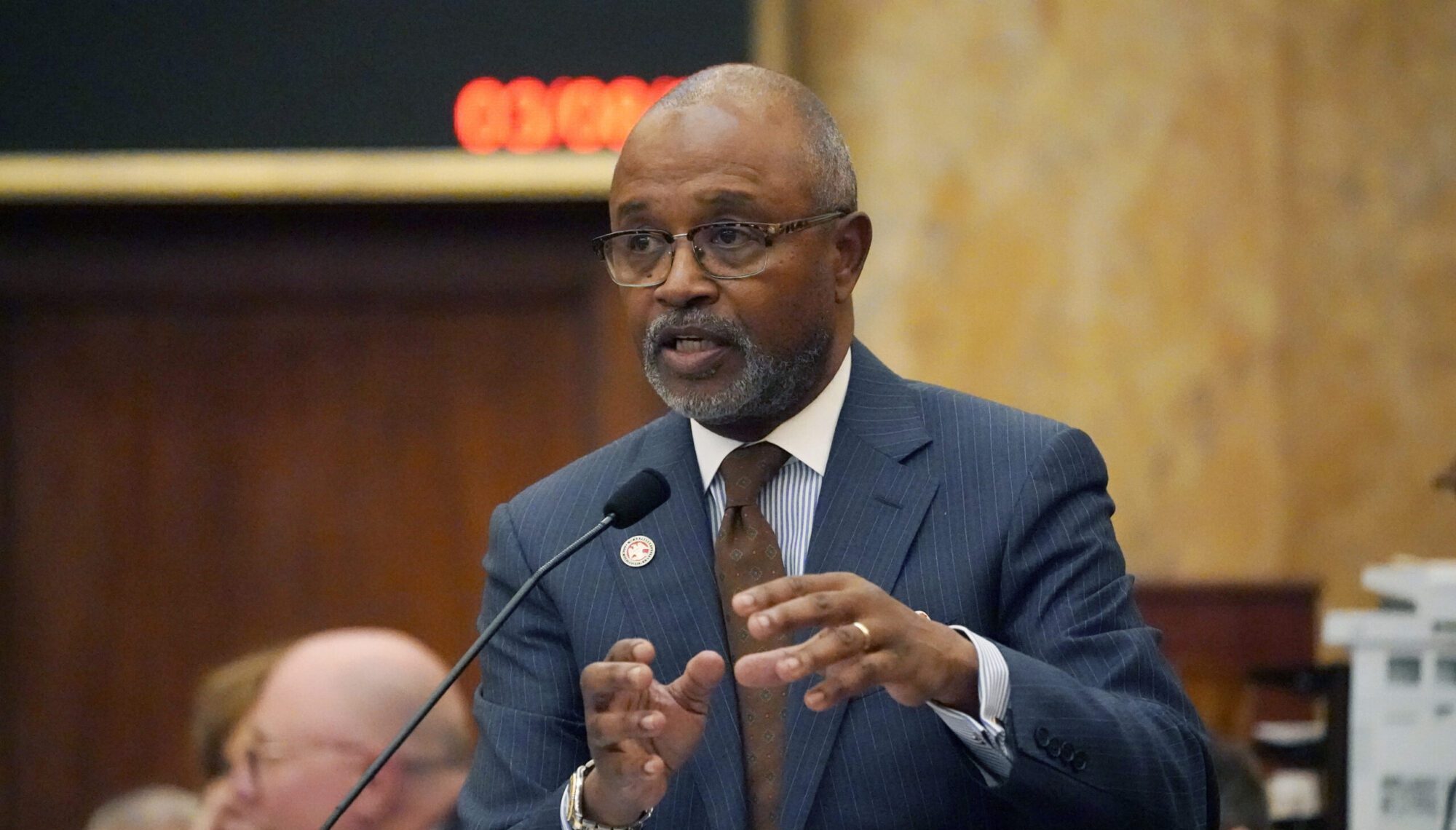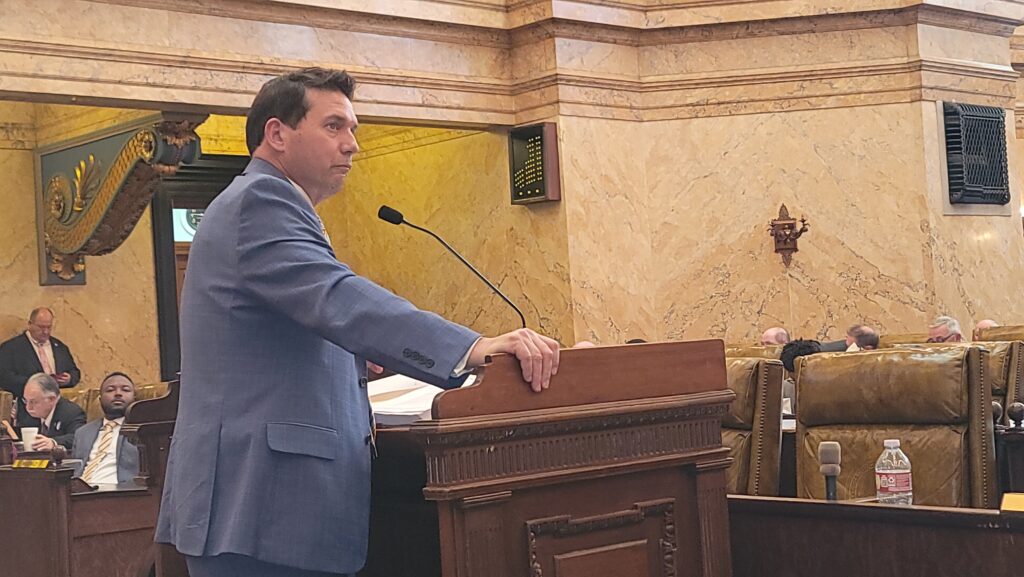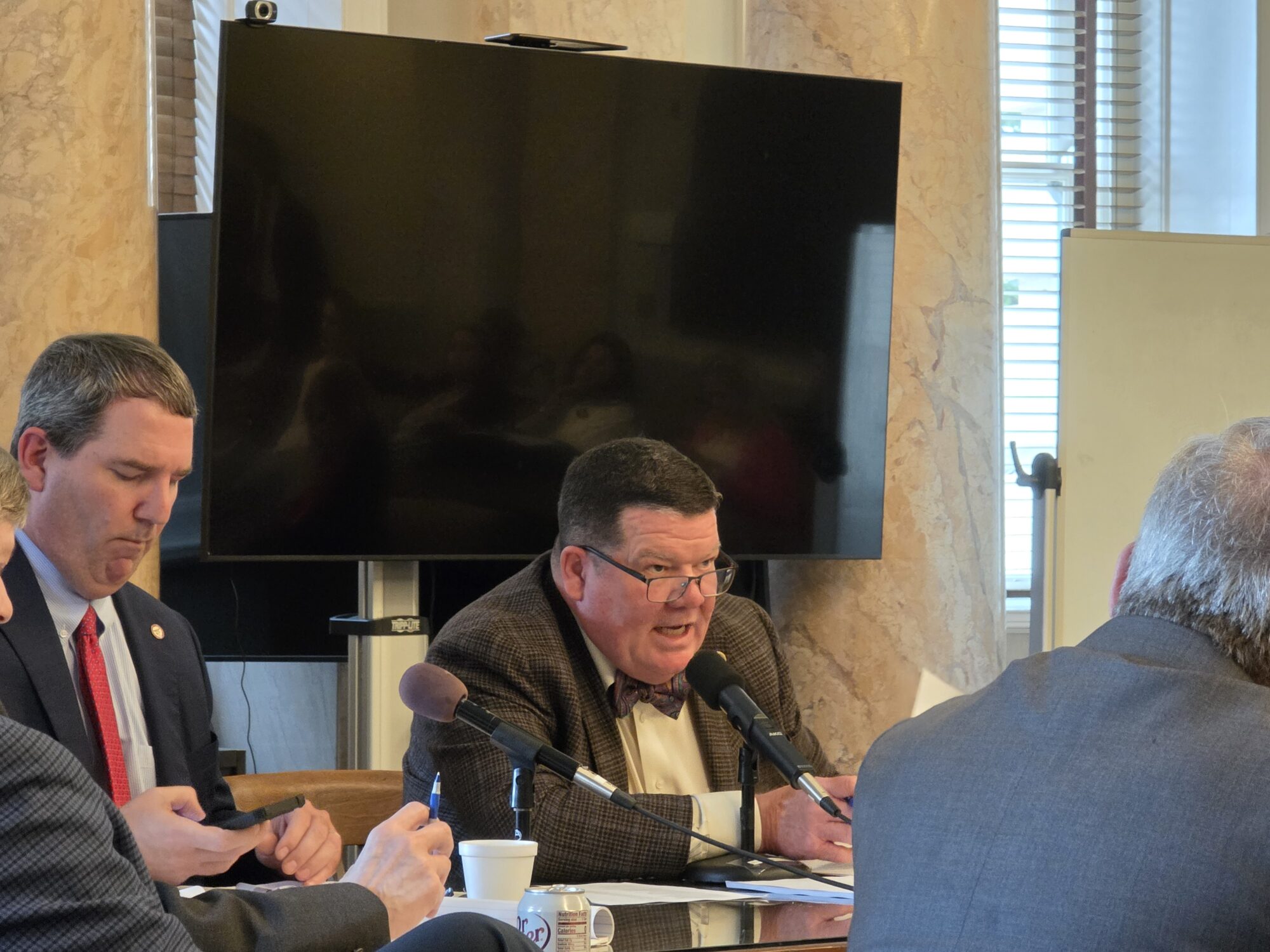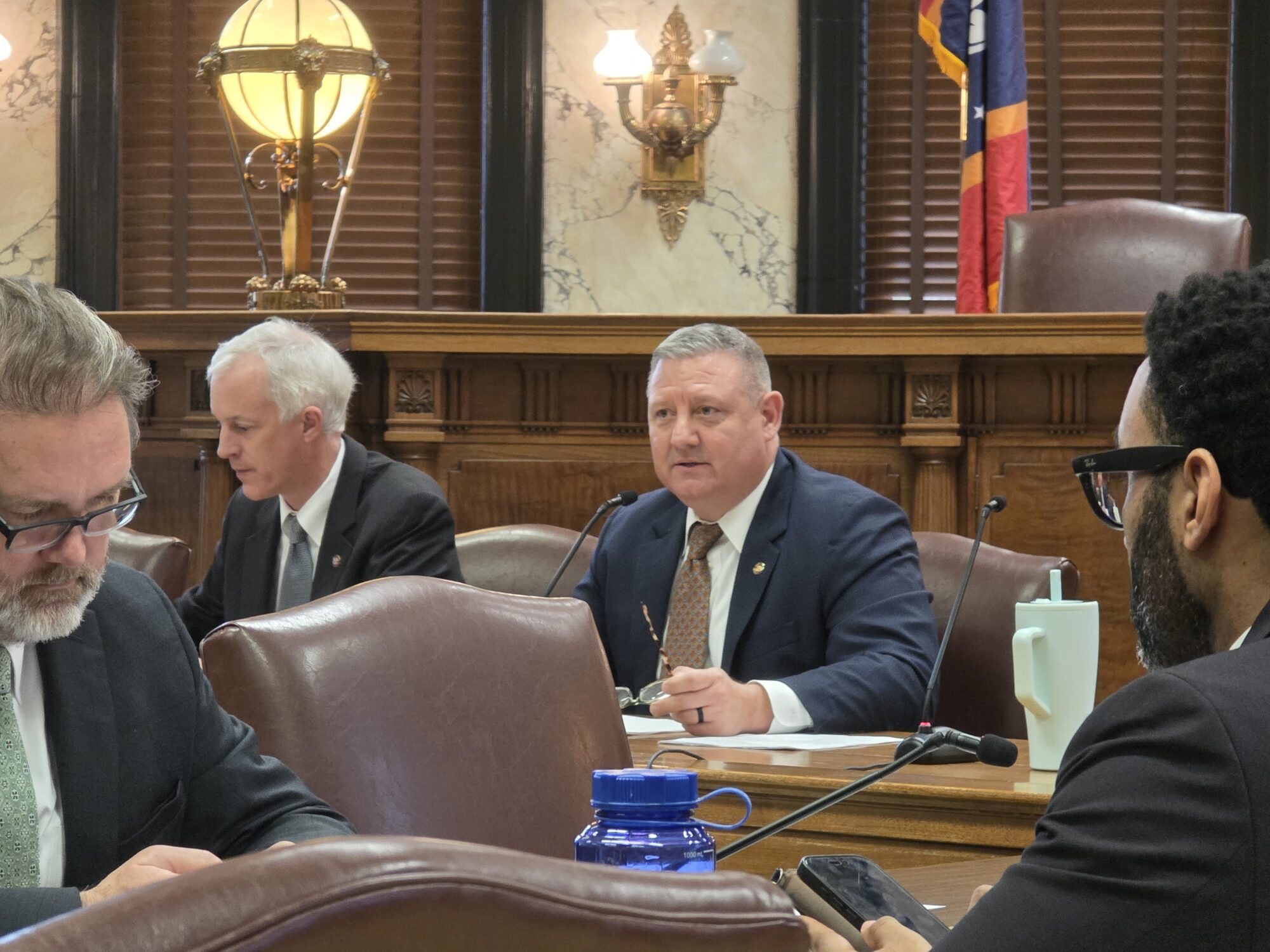
Rep. Robert Johnson, D-Natchez, speaks about his amendment to proposed ballot initiative legislation, during floor debate, Wednesday, March 8, 2023, at the Mississippi Capitol in Jackson. (AP Photo/Rogelio V. Solis - Copyright 2023 The Associated Press. All rights reserved.)
- The House Democratic Leader made a motion to reconsider the measure moments before the chamber adjourned sine die on Wednesday, effectively killing the bill.
A bill that would have limited state incentives for companies that did not allow for secret ballot union elections found stiff competition on the House floor this week just prior to sine die.
State Rep. Lee Yancey (R) presented the conference report for SB 2849 on the floor of the House Wednesday morning, describing it as a simple bill that had one mandate.
“This bill doesn’t affect union organizations, it doesn’t affect unions being in Mississippi,” Yancey said. “It just says that if a company wants to receive incentives you have to allow a secret ballot election.”
The specific language in the bill read, “It is the intent of the Legislature, as part of its economic development policy, that: (a) Whenever state funds or benefits are sought by a private business, such benefits shall be conditioned on the private business agreeing not to waive its employees’ right to a secret ballot election when recognizing a labor organization as a bargaining unit or requiring subcontractors to waive their employees’ right to a secret ballot election…”

Several Democratic representatives in the House took issue with the underlying consequences the bill would have on the establishment of unions in the state. As a right-to-work state, unions are not as prevalent in Mississippi as they may be in some other states in the nation.
State Rep. John Hines (D) said the language in the measure is the same that is used to dissuade companies from allowing unions.
State Rep. Oscar Denton (D) gave a passionate speech objecting to the bill, citing his own personal experiences in how unions protect the working public from unfair labor practices. He said that he joined a union on his second day on a job in which he worked for more than four decades, working his way up to eventually become the union’s president. Denton added that in his experience unions protect employees through contracts that ensure equal treatment.
“My boss can’t look at me and say, ‘Oscar, I don’t like you. I’m going to pay you this amount of money an hour,'” Denton said.
He went on to describe how allowing the bill to become law would only set Mississippi back.
“We’re not talking about nothing 50 years ago,” Denton said. “We’re talking about 2025, and we still fighting the same fights that my momma fought.”
House Minority Leader Robert Johnson (D) said the bill may seem innocuous, but what it actually would have done is make unions much more difficult to establish in Mississippi by blocking those economic development incentives if secret ballots were not used. In effect, Johnson said, the bill sends the message that Mississippi does not value what unions bring to the table by ensuring fair practices.
“There may be something that this bill is trying to accomplish, but what we are doing is cutting our nose off to spite our face,” Johnson told the House.
An initial attempt to recommit the bill for further work by State Rep. Zakiya Summers (D) failed Tuesday by a vote of 32-78. However, after the measure passed on the floor that same day by a vote of 79-37, Democratic Leader Johnson made a motion to reconsider the bill moments before the House adjourned sine die on Wednesday, effectively killing the bill.











